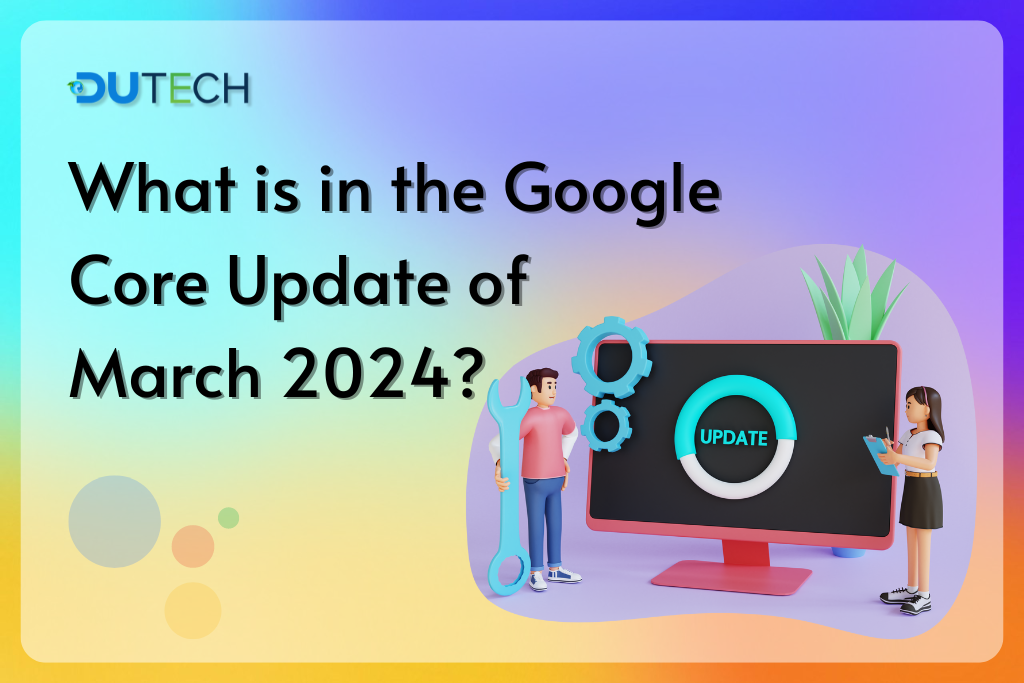Every day, 8.55 billion people turn to Google to find something, and to cater to this need for content, there are more than 50 billion websites on Google. All these websites upload information in written content, audio, and videos, but the question arises about which content is trustworthy and which is spammy.
From the beginning, Google had a strict guideline against spammy and autogenerated content, which can mislead readers. The latest Google Core Update for March 2024 has officially rolled out with the new and improved spam policy.
This comprehensive blog post will decode the new core update and see how it will benefit websites with original content to rank.
A Quick Insight into the Core Update
As the most popular search engine, Google always tries to deliver the best results possible. The tech giant Google has been working on the issue of spammy content since 2022. Over the years, Google has updated its spam policy to make the content as fair as possible, and the core update of March 2024 comes with three major policy updates that Google has learned over the years.
Google has retuned its core ranking system, which will filter the search results more efficiently. It will help Google scan the web pages and determine the unhelpful and poor user experience websites. This update promises to reduce spammy content by 40%.
Along with this, the tuned ranking system and updated algorithms in the latest update will keep a check on the low-quality content from ranking. This action will enable Google to take more targeted action on websites with poor user experience, low quality, and spammy content.
With further ado, we’ll look at three changes that Google included in the March 2024 core update.
Rein on the AI-generated Content.
Google has always tried to control the practice of AI-generated low-quality content. Many websites produce bulk content with the help of AI to manipulate the search rankings. The automated content has less credibility and isn’t always clear, which does not serve the purpose of spreading accurate information to the masses.
Google Core Update for March 2024 will control the scale of content creation. This update will keep a close eye on the websites that are posting AI content in bulk, and after reviewing likewise websites, Google can take appropriate action.
Misuse of Site Reputation
Websites with good traffic and original content also post or provide backlinks to websites with low-quality, spammy, and AI-generated content. The goal behind this is to cash in on the goodwill of the ranking website. This practice increases the SEO of the spammy website and also creates confusion among the audience as it does not provide the quality they expected based on the hosting website.
This core update will consider the values of the hosting website and the third-party content and if it is generated solely for ranking purposes, then Google will rank it as very low, and action will be taken accordingly.
Use of an Expired Domain
The practice of buying expired domains to rank low-quality and spammy content will be restricted by the Google Core Update 2024. The difference between the website’s niche and the content subject provides the users with incorrect information and can easily mislead the audience as the new content is posted from the older website.
This update will reduce the number of false websites and contribute to making the Google search more accurate and safe for users.
Conclusion
In conclusion, the Google Core Update of March 2024 marks a significant milestone in the ongoing battle against spam and low-quality content. With billions of people relying on Google daily, the need for trustworthy information is paramount. This update focused on curbing AI-generated content, misuse of site reputation, and the use of expired domains and aims to enhance user experience and accuracy. By enforcing stricter policies, Google is taking proactive steps to ensure that original and valuable content gets the recognition it deserves, ultimately benefiting both users and content creators.

